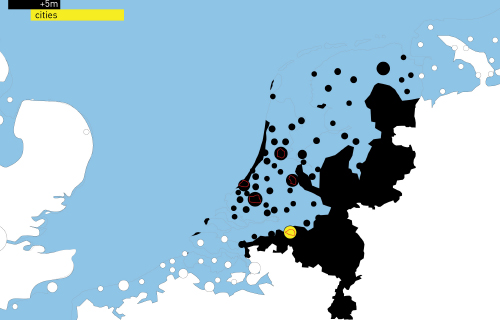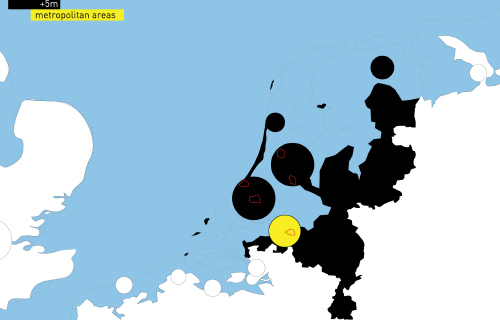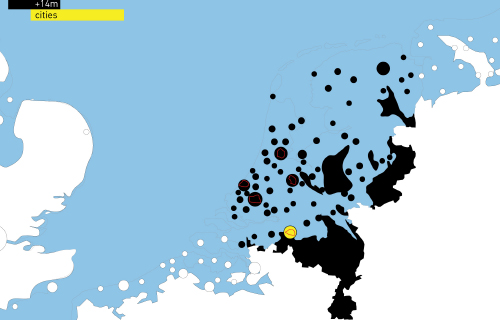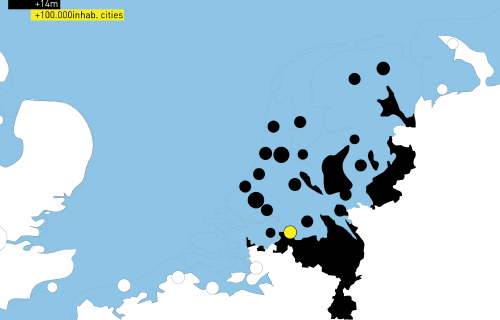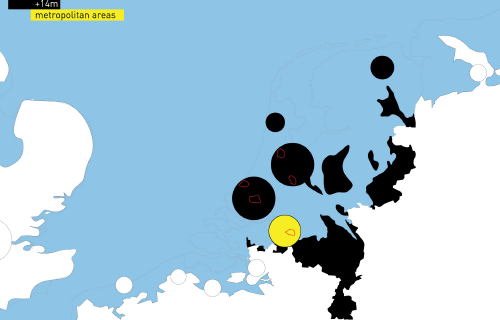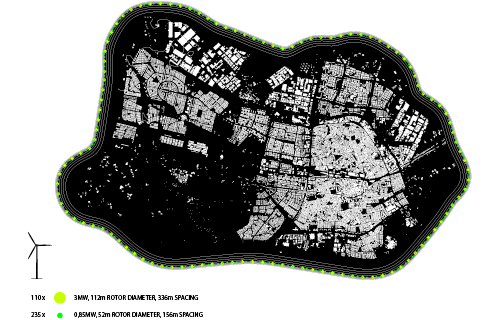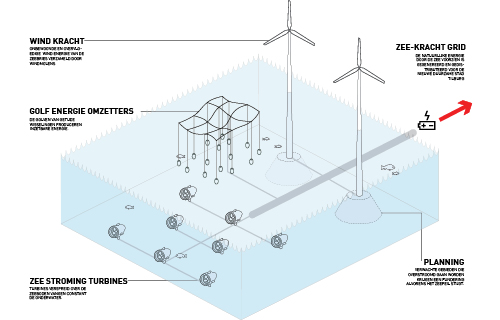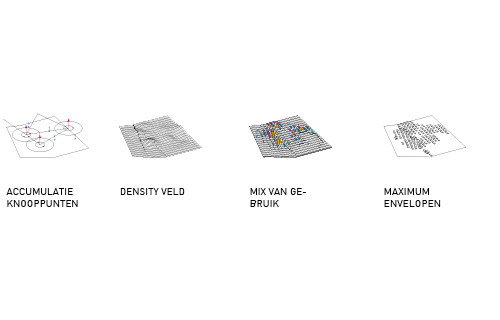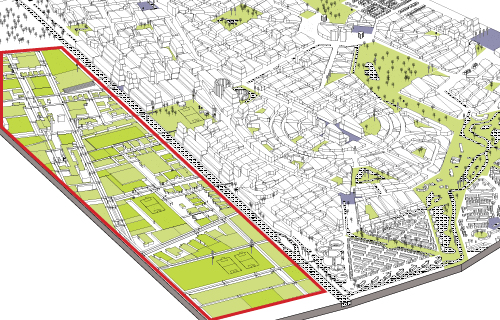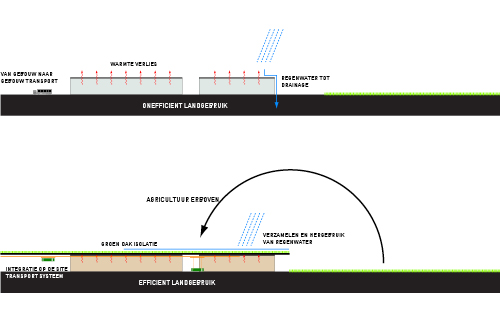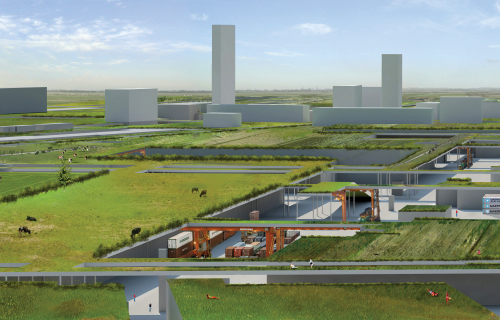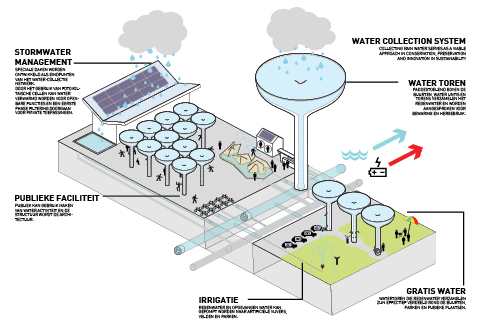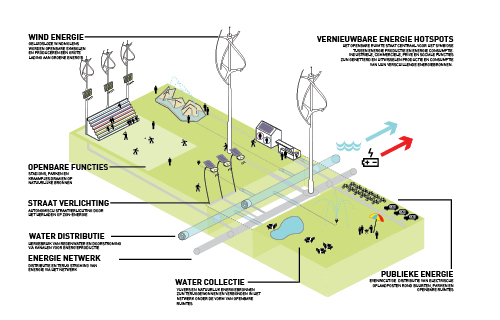Tilburg 2040
Sustainability cannot be seen just in the short term. In fact climate changes happen in very long spans of time. The effects of climate change we face now are the results of hundred of years of industrial revolution. If this is true, we should set our focus on a very long distance to start to understand the implications for future generations. We can do a lot to change the trend, but it will be wise to start to introduce adaptability as a necessity for our design, for our planning and for the way we envision our future.
But if we look at distant future, it is clear that the challenge is not really to freeze the current condition of the city. Instead we should learn once again how to adapt the form of the city, because change is always present.
In this perspective the the ocean rise although highly controversial, is a serious risk to take into account for the Netherlands. Studies are showing a potential rise between 2 and 7m by the year 2100. Under those conditions the entire territory of the Netherlands is potentially engendered and its traditional dike system will be unfit to protect its coast. We could imagine the Netherlands as an archipelago, or rather a lagoon, 75 times the size of the Venice lagoon. Could we turn this condition in a potential for new sustainable leaving? Reverting back this scenario help us to learn that keeping our cities compact is a vital option and also a great opportunity. The intention of this study is to show that a pragmatic utopia introduces a potential for a sustainable vision of our future cities.
Compactness could be forced through a coastal intervention: if we imagine to develop a shallow landscape around the cities to protect the land, this will tweak our perspective. Such an infrastructure would necessary be phased over long spans of time, and meanwhile will start to help us to preserve our most valuable asset in city planning, the land.
The UN definition of 1987 states that ™Sustainable development is development that meets the needs of the present without compromising the ability of future generations to meet their own needs; now this, in city development reflects in the preservation of the main heritage we could preserve, land.
type: city planning study
place: tilburg, The Netherlands
team: jds
status: completed
year: 2010
© jds

